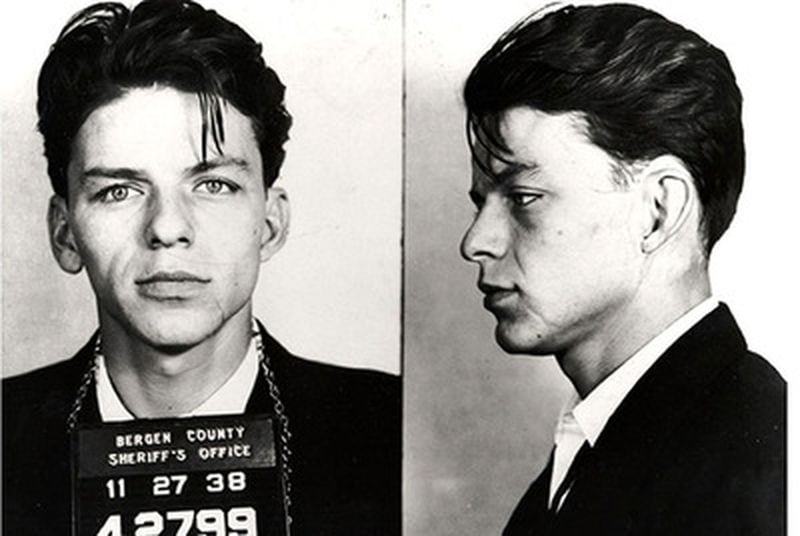From Kurt Cobain to Michael Jackson: the growing list of music stars investigated by the intelligence services
Last week, two supposedly disconnected news items, spread by the press on both sides of the Atlantic, once again put on the table an issue of which more details are known every year and a relationship that, at least in the collective imagination, seemed limited to a more remote past: the particular and sometimes astonishing link between the FBI and UK intelligence services with various figures of rock, folk and pop music of the last century.
A select group that Kurt Cobain joined in recent days: last month, for reasons that have not been made official, the FBI declassified its hitherto secret file on the suicide of the leader of Nirvana, coinciding with the 27th anniversary of the death of the musician. A ten-page document whose details were published by Rolling Stone magazine last Friday, and which includes the response of the investigation office to various messages and conspiracy theories received by agency agents in recent decades.
A day earlier, on Thursday 6, in an interview with the English newspaper The Guardian, the drummer and founder of the British pop and reggae band UB40, Jimmy Brown, revealed that during the heyday of his group, in the decade of the 80, when they triumphed with singles like Food for thought (1980) and its successful version for Red red wine (1983), the members were considered a threat to the security of the country and spied on by the intelligence service of the United Kingdom.
“MI5 listened to our phones, watched our houses, all that kind of thing,” the drummer told the newspaper. “We were thinking, ‘Don’t they have criminals to catch?’ We were just a bunch of flies, smoking marijuana and playing music. We weren’t planning the revolution, but if the revolution happened, we knew which side we were going to be on ”.

The two revelations of the last days confirm that the historical interest and concern that both investigative agencies, and especially that of the United States Government, has shown about dozens of music celebrities. And that the supposed threat to security that these artists at the time represented – due to their cultural and eventually ideological impact – did not remain only in the years of J. Edgar Hoover and the great Italian-American mafias, or the classic rock of the Nixon era. , continuing during and even after the Cold War.
Since the FBI put legendary jazz players like Duke Ellington and Nat King Cole under surveillance, as part of its COINTELPRO program, which sought to suppress advances in civil rights in the United States and supposedly defend communist or pacifist groups (Ellington was monitored for forty years, until his death), many targets of that country’s criminal investigation bureau have been African-American artists. And some quite more contemporary.
Hip hop stars of the 80s and 90s, with a rebellious, rebellious or gangster profile, were closely followed by federal agents for their alleged political motivations, including Tupac Shakur, Notorious BIG Eazy-E and Wu-Tang Clan, who even They came to be considered a “major criminal organization” in the files of the FBI, according to a report from the British portal NME. In the case of the Notorious BIG, such as that of Kurt Cobain, the monitoring occurred in the mid-90s, when the bureau decided to get involved in the investigation for his murder, with a file – unlike the leader of Nirvana – very extensive closely 300 pages, which ultimately would not have yielded conclusive results, as the case was officially closed in 2005.
Decades earlier, the members of The Jimi Hendrix Experience took it for granted that the drugs for which they were arrested in Canada were planted by the same authorities that arrested them during their passage through Toronto in 1969, motivated by the supposed “black cultural emancipation” of the one that the US government feared during those days.
Michael Jackson also earned a file from the FBI, which was updated for several years and declassified in late 2009, as part of the so-called Freedom of Information Act. Of course, in the case of the King of Pop, for reasons very different from his political affiliations or use of illicit drugs, but for the various accusations against the artist for sexual abuse against minors in the second stage of his career.
According to the document, the criminal investigation office “made several investigations” into Jackson, although none of them ended with evidence of criminal conduct or charges against the singer. Between 1993 and 2005, the man from Thriller was investigated by the California courts due to these child abuse allegations, and at that time the FBI provided technical and investigative assistance during the cases. The federal agency also investigated the threats made against Jackson and other artists by a subject named Frank Paul Jones, who was later imprisoned for those crimes.

And if it is about tapped phones and espionage in more recent times, a paradigmatic case although not so well known is that of Thom Yorke, leader of Radiohead, who in 2001, during the days of greatest fame of the group, would have been closely monitored by the British MI5, when the singer publicly supported -on the group’s website- anti-capitalist protesters, civil liberties groups and the collective Reclaim The Streets (Recover the Streets, in English), created by citizens in favor of the recovery of spaces public.
As the Radiohead leader told NME at the time, the British intelligence service was closely following these protesters – for alleged links to terrorism and subversion groups – and, apparently, himself. “I know a few things about MI5 that would blow your brain. But I can’t tell you, because they will tell me too. Seriously ”, declared the musician.
The aforementioned Freedom of Information Act and the Privacy Act in the United States have made it possible to make public a series of information and documentation from the FBI that for years was considered simply as mythology.
According to a book on the subject published in 2010 by the Italian historian Mimmo Franzinelli, Rock & servizi segreti (Rock and Secret Services), the FBI’s interest in celebrities and celebrities was completely linked to and influenced by its creator, the legendary J. Edgar Hoover, who maintained his power based on the information he handled around politicians but also artists. In fact, according to a review of the book published by the newspaper El País, at the time “Frank Sinatra’s dirty laundry served to pressure the Kennedys, who shared his weakness for female flesh.”
In the 1960s, meanwhile, during the Nixon years, there was a long pattern in Washington of monitoring and surveillance of music stars from all walks of life. In recent years, with the declassification of these documents, more details have become known about these operations and the files that the agency kept on musicians and artists such as John Lennon, Pete Seeger and Mama Cass Elliot of The Mamas and the Papas. .

In the case of the former Beatle, he earned a record for his anti-war statements (as did many counterculture celebrities of the 60s and 70s), while Jim Morrison of The Doors was followed for years and by 1968 accumulating a file. 80 pages long, which included reports of 10 arrests, mainly for vagrancy and drunkenness.
Of particular interest would have been his “lewd and obscene performance” at a The Doors concert in New Haven, when the singer, surrounded by local police as security, began to speak out against the uniformed men and was arrested on stage.
The historical list, in any case, includes many more names, some downright singular or anecdotal. The harmless group The Monkees was investigated in the 1960s for alleged anti-American “subliminal messages” at their concerts; Robin Gibb of the Bee Gees did the same, for a “potentially threatening” telegram he sent to the law firm representing his then-wife in the divorce proceedings, and country singer-songwriter John Denver also had his file, although in his case for death threats made against him in 1979. Even the flamboyant pianist Liberace had his file, although it would have been because of his fondness for underground gambling.






No hay comentarios.:
Publicar un comentario